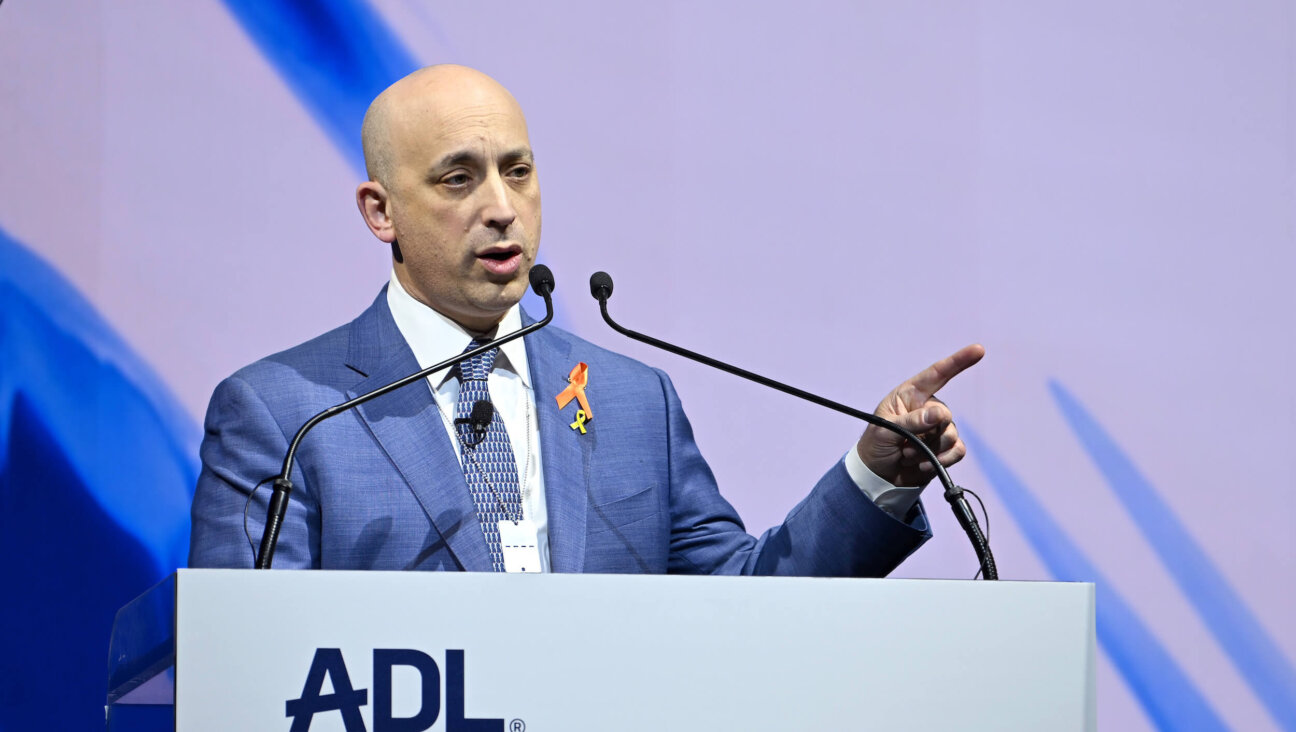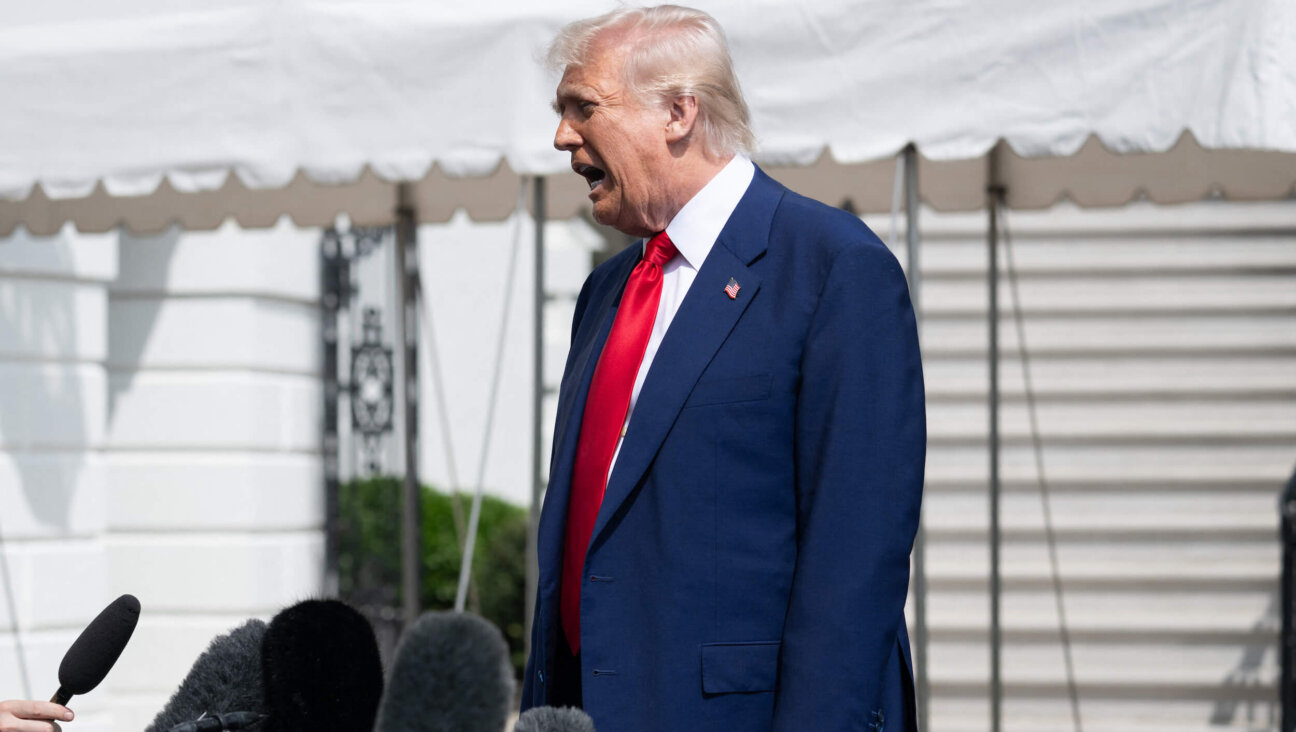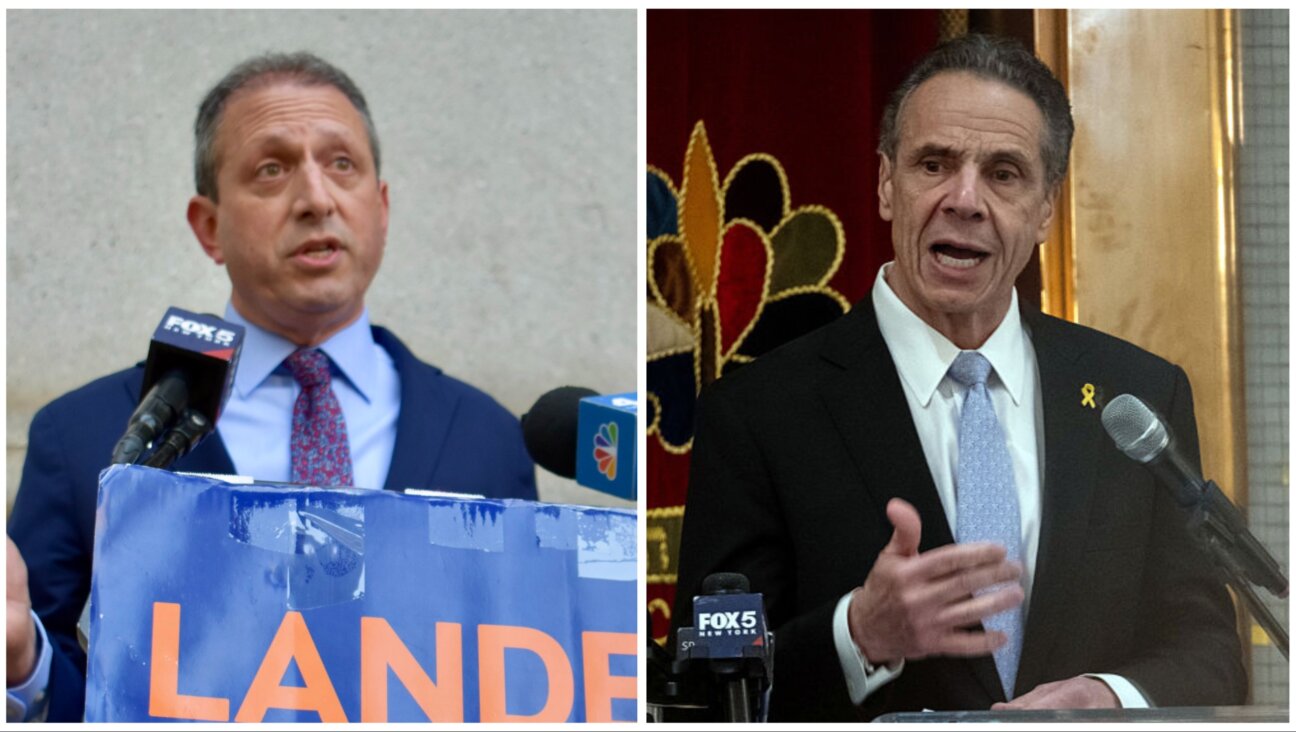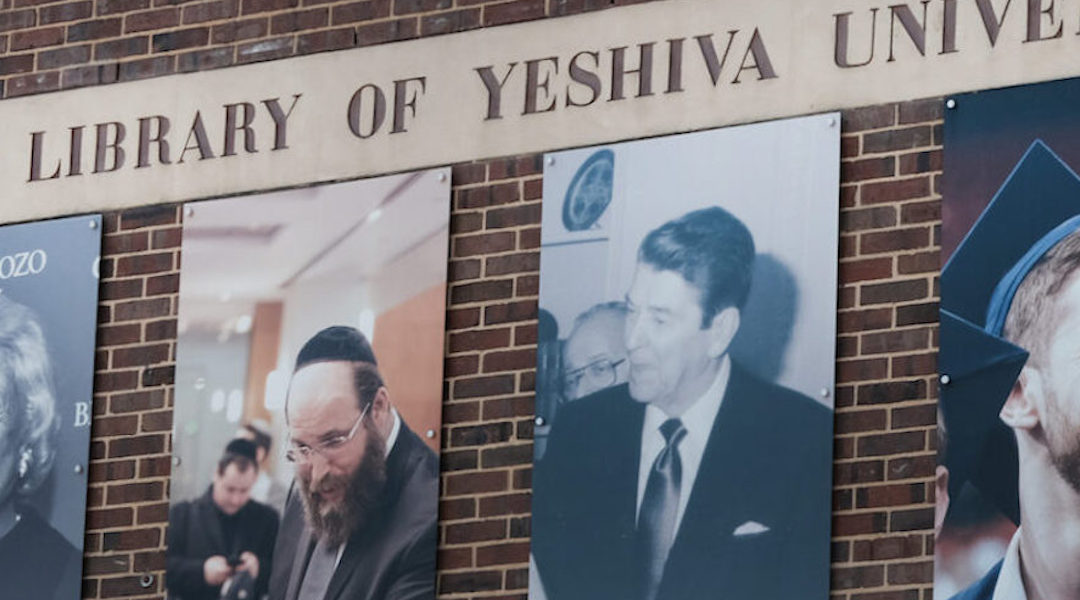Seminary Heads Join Rare Event
Stamford, Conn. — With the rhetoric of national unity still hanging in the postelection air, the leaders of the flagship seminaries of the three largest Jewish movements met in a rare joint appearance.
Sitting before a packed house at Temple Beth El here in Connecticut, Arnold Eisen, Jewish Theological Seminary chancellor; Rabbi David Ellenson, president of Hebrew Union College-Jewish Institute of Religion, and Richard Joel, president of Yeshiva University, spoke amicably about the election of Barack Obama, the future of rabbinical training and things they admired about the other movements.
Though such appearances together are rare — the three could not agree as to whether they had ever publicly appeared together previously — the leaders described themselves as friends and seemed to get along comfortably. All emphasized their ability to disagree respectfully.
“We want to symbolize our sense that denominations matter, the differences matter, but so does the transcending of differences,” Eisen said.
The joint appearance and its friendly tone suggest that relations between the movements are at a high point, a far cry from the situation a decade or more ago, when sharp disagreements between the movements were commonplace on such topics such as conversion, patrilineal descent, the rights of women, gay and lesbian rights and a host of other issues.
“The way they’re talking to each other, I can’t imagine the previous generation [of leaders] talking to each other in this comfortable way,” said Ellen Umansky, a Fairfield University professor of Judaic studies who attended the event.
The friendly atmosphere was possible, at least in part, because the Jewish stream associated with many of the sharpest conflicts — the ultra-Orthodox — was not present for the event.
The evening opened with a discussion of the election of Obama, and the discussion quickly touched upon one key difference between the movements: Ellenson commented that he didn’t think a single one of his students had voted for the Republican ticket, adding, “It’s almost a problem to me.”
“The supporters that David was looking for were up at Yeshiva University,” Joel quipped. But the discussion did not dwell on the political split between Orthodox Jews, who increasingly vote Republican, and non-Orthodox Jews, who are overwhelmingly Democrats — a split that has vexed communal activists. Instead, the leaders spoke about the historic nature of the election and about the notion of linking faith to political activism. They even linked their own appearance to Obama’s talk of national unity.
“Sometimes, Rabbi Ellenson, Dr. Eisen and Richard Joel just being together is a statement,” Joel said. “It’s our way of saying, ‘Yes we can.’”
Later, at the behest of moderator Joshua Hammerman, the synagogue’s rabbi, each leader identified aspects of the other two movements that he envied. Ellenson praised the Conservative and Orthodox movements for their ability to inculcate a commitment to serious Jewish life. Eisen praised the Reform movement for its commitment to social justice, and Orthodoxy for its close relationship to Israel. And Joel, after an uncomfortable pause of several seconds, praised the other two movements for their willingness to act in the world beyond the Jewish community.
When the discussion did turn to differences among the movements, the leaders emphasized the principle of having disagreements while maintaining an open dialogue. Describing himself as a pluralist, Joel explained, “I think a pluralist is someone who is prepared to honor the other person’s right to be wrong.”
Each of the three leaders who appeared is the first picked to lead his institution in the 21st century, and Eisen argued that all three boards made a conscious decision to choose leaders who are pluralists, reflecting the spirit and urgency of the current moment.
“I think it has to do with where we are right now. We’re losing too many Jews,” he told the Forward. “There is a conviction that this is a moment to shine and grow, and we have to not let it languish.”
The Forward is free to read, but it isn’t free to produce

I hope you appreciated this article. Before you go, I’d like to ask you to please support the Forward.
At a time when other newsrooms are closing or cutting back, the Forward has removed its paywall and invested additional resources to report on the ground from Israel and around the U.S. on the impact of the war, rising antisemitism and polarized discourse.
Readers like you make it all possible. We’ve started our Passover Fundraising Drive, and we need 1,800 readers like you to step up to support the Forward by April 21. Members of the Forward board are even matching the first 1,000 gifts, up to $70,000.
This is a great time to support independent Jewish journalism, because every dollar goes twice as far.
— Rachel Fishman Feddersen, Publisher and CEO
2X match on all Passover gifts!
Most Popular
- 1

News A Jewish Republican and Muslim Democrat are suddenly in a tight race for a special seat in Congress
- 2

Fast Forward The NCAA men’s Final Four has 3 Jewish coaches
- 3

Fast Forward Cory Booker proclaims, ‘Hineni’ — I am here — 19 hours into anti-Trump Senate speech
- 4

Film & TV What Gal Gadot has said about the Israeli-Palestinian conflict
In Case You Missed It
-

Opinion The ADL reversed its support for Trump’s student deportations. You should too
-

Fast Forward Senate rejects Bernie Sanders’ proposal to block some weapons sales to Israel
-

Fast Forward Sotheby’s to auction earliest known kiddush cup
-

Opinion Trump’s new tariffs on Israel are a BDS dream come true
-
Shop the Forward Store
100% of profits support our journalism
Republish This Story
Please read before republishing
We’re happy to make this story available to republish for free, unless it originated with JTA, Haaretz or another publication (as indicated on the article) and as long as you follow our guidelines.
You must comply with the following:
- Credit the Forward
- Retain our pixel
- Preserve our canonical link in Google search
- Add a noindex tag in Google search
See our full guidelines for more information, and this guide for detail about canonical URLs.
To republish, copy the HTML by clicking on the yellow button to the right; it includes our tracking pixel, all paragraph styles and hyperlinks, the author byline and credit to the Forward. It does not include images; to avoid copyright violations, you must add them manually, following our guidelines. Please email us at [email protected], subject line “republish,” with any questions or to let us know what stories you’re picking up.















